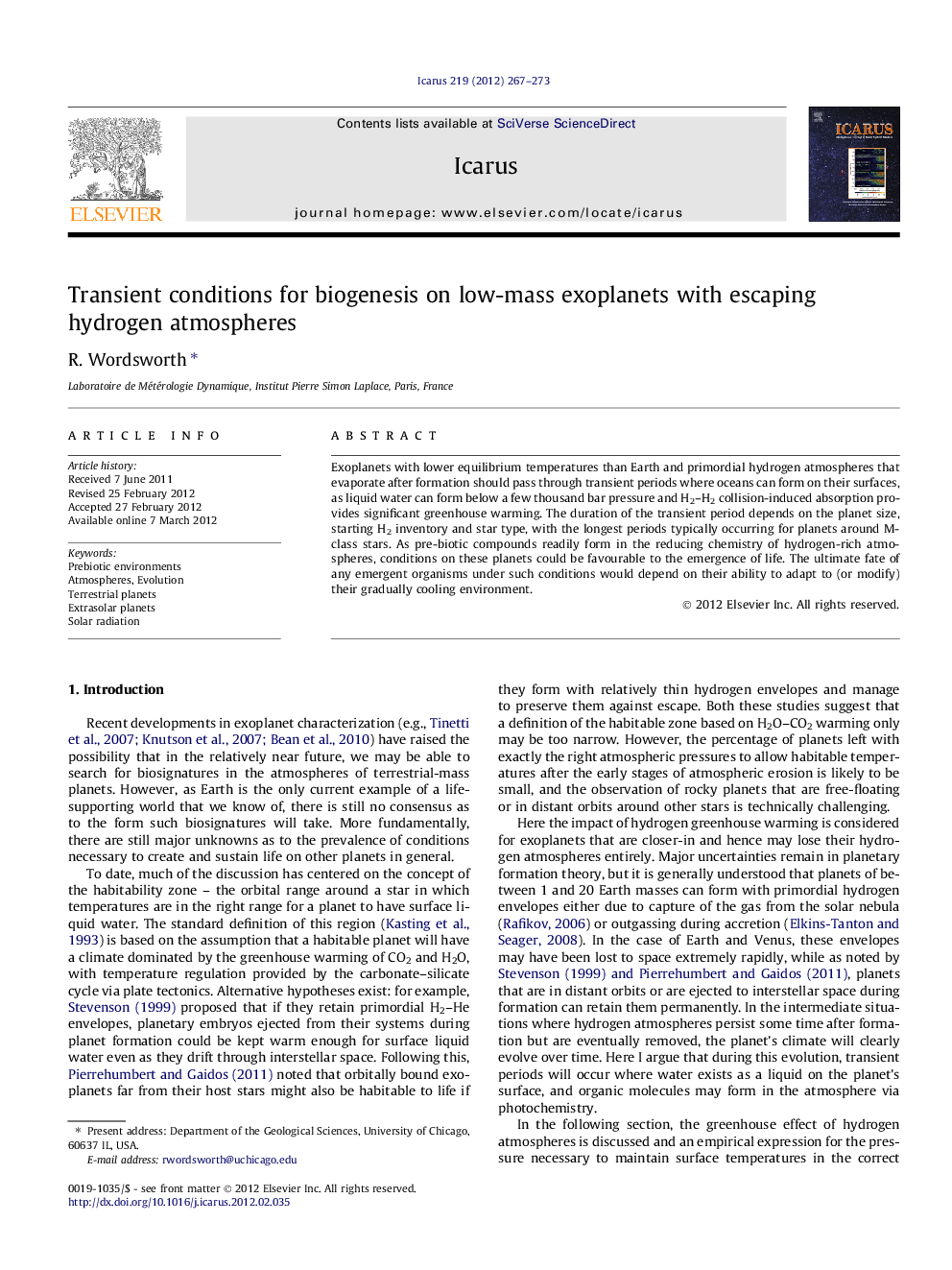| Article ID | Journal | Published Year | Pages | File Type |
|---|---|---|---|---|
| 1773495 | Icarus | 2012 | 7 Pages |
Exoplanets with lower equilibrium temperatures than Earth and primordial hydrogen atmospheres that evaporate after formation should pass through transient periods where oceans can form on their surfaces, as liquid water can form below a few thousand bar pressure and H2–H2 collision-induced absorption provides significant greenhouse warming. The duration of the transient period depends on the planet size, starting H2 inventory and star type, with the longest periods typically occurring for planets around M-class stars. As pre-biotic compounds readily form in the reducing chemistry of hydrogen-rich atmospheres, conditions on these planets could be favourable to the emergence of life. The ultimate fate of any emergent organisms under such conditions would depend on their ability to adapt to (or modify) their gradually cooling environment.
► Transient conditions for origin of life on evaporating exoplanets. ► Hydrogen greenhouse warming allows conditions for liquid water. ► Photochemistry in reducing atmosphere causes formation of organic precursor molecules. ► Importance of phenomenon will depend on adaptability of life to changing planetary conditions.
